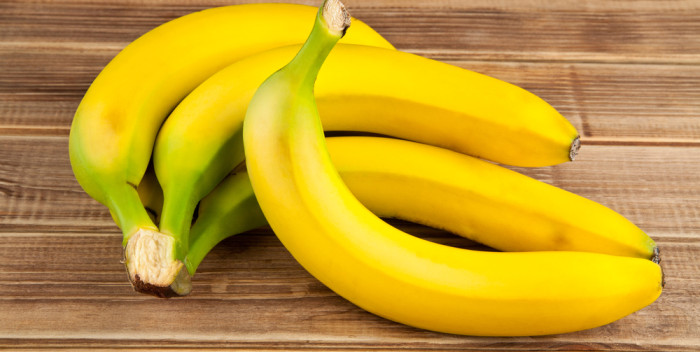The benefits of bananas
The first mentions of bananas date back to the 5th-4th centuries. BC. It is believed that his homeland was Southeast Asia, a little later it became known about them in Rome, Greece, India and China. Previously, fruits were available only to southern countries, northern countries could only dream of them due to the inaccessibility of transportation. Today the largest pilaf exporters are Thailand, Brazil, Egypt, India. There are two varieties of fruits: plantains, which require processing in the form of boiling or roasting, but they are mainly used for livestock feed and dessert, with a soft, tasty pulp that can be consumed in any form.
The benefits of bananas 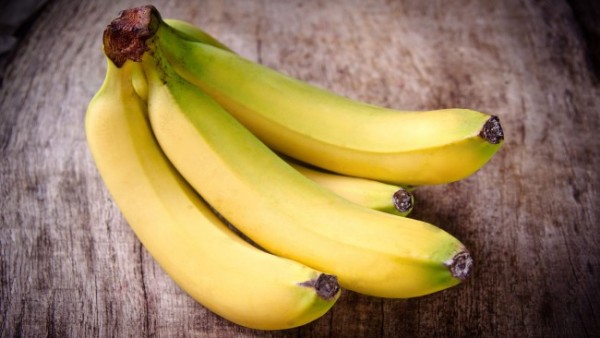
Fresh and ripe bananas are a storehouse of trace elements and vitamins necessary for humans. They contain zinc, iron, sodium, potassium, calcium, phosphorus, copper, vitamins A, C, E, PP, B9, B1, B2, B3.
Not only is the fruit very tasty and satisfying, it also benefits from:
- low sugar levels;
- treatment and prevention of liver and kidney disease;
- anemia;
- atherosclerosis;
- depression;
- hypertension;
- constipation;
- heartburn;
- swelling of the hands and feet;
- insomnia;
- bad mood and depression;
- enteritis;
- ulcerative diseases of the gastrointestinal tract;
- gastritis;
- poor performance of the heart muscle;
- high cholesterol levels.
Fruits knit and create an antiseptic effect on irritated and inflamed mucous membranes of the stomach and mouth. Those who suffer from diabetes can only eat unripe bananas, since ripe fruits contain a lot of sucrose, glucose and fructose. Yellow fruits are considered a very energetic food because they increase physical stamina and mental performance.
Bananas are used in the beauty industry, they are added in the production of cosmetics and home masks. The magical properties of fruits help nourish the skin, eliminate fine wrinkles, remove inflammation, restore hair, get rid of dry hair... Banana peel is also actively used to achieve and prolong beauty, it is known that it can remove even the largest warts, and it is also used to whiten teeth at home.
Bananas also have their advantages for women. If ripe fruits are consumed, the symptoms of the premenstrual period can be relieved. Fruits can also help in the fight against extra pounds, of course, provided that you do not overuse them. There are special banana diets, fasting days on fruits, they can be added to other diets, for example, combined with curd... Another plus of yellow fruits is that they are very useful for those who are trying to get rid of the bad habit of smoking. And if you make a mixture of ground banana and honey, you can get rid of a terrible hangover.
Banana harm 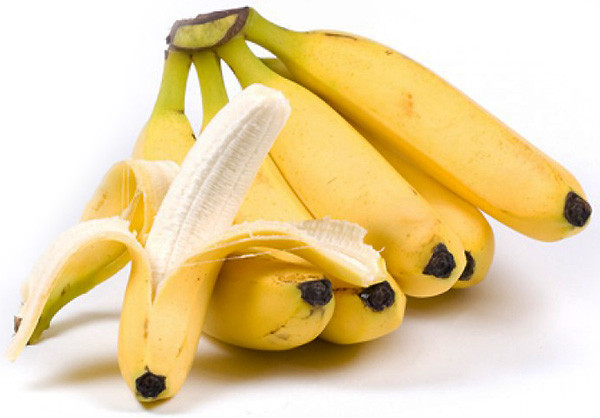
As you know, everything is good in moderation, so a high-calorie fruit should not be overused. This can add extra pounds, cause allergic reactions, vitamin K hypervitaminosis can occur. For diabetics, ripe fruits are dangerous, by raising blood glucose. You should not add fruits to the diet for those who suffer from coronary artery disease, high blood clotting, thrombophlebitis, cardiovascular problems, varicose veins, those who have suffered a heart attack or stroke. Bananas should be given to small children with caution, they can provoke bloating, poisoning, colic. Often, flatulence and bloating can occur in an adult.
Calorie content of bananas 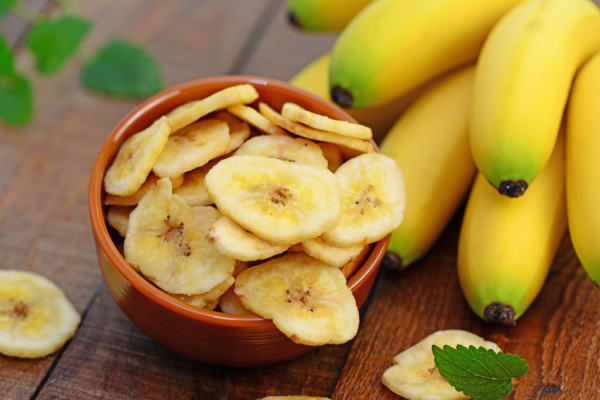
A ripe, medium-sized fruit has about 89-91 kcal, it is high in carbohydrates, which helps to quickly saturate the body. There are much more calories in a dried product, about 346 kcal per 100 g of bananas. In fruit juice 48 kcal per 100 g. So if you like bananas, but do not want to harm your figure, then consume them in moderation.
Can a child have a banana 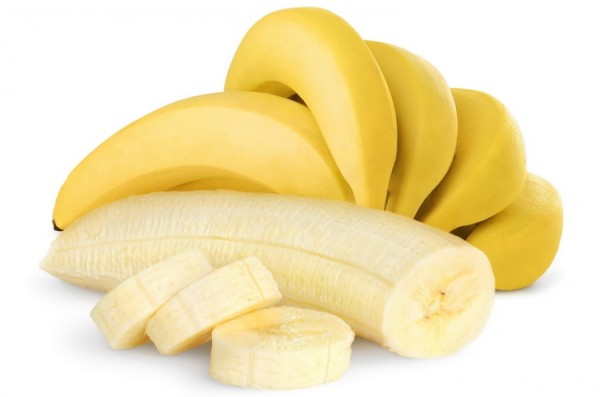
Fresh ripe fruit should not be introduced into the baby's diet earlier than 8-9 months. But even at this time, you should monitor the reaction to the new product and do not give it in large quantities. Pediatricians recommend starting the first feeding not with a sweet tasty banana, but with cereals and purees from vegetables, so that the child does not give up breast milk and other not so tasty foods.
Starting from 6-7 months, you can introduce mashed banana, cooked on your own, into the diet. Bananas are processed in a steam bath and then kneaded with a fork. Fruit at such a small age will be useful for a growing and developing organism. Vitamins and trace elements will help in the formation of bones, muscles, normal functioning of the brain and other systems. Banana contains about 20% starch, so it is quickly absorbed. Fiber gives a boost of energy for children's games, B vitamins improve sleep, normalize the nervous system. Another plus of this fruit for children - because of its soft delicate consistency, it can be licked, chewed, sucked, swallowed without any problems.
There are several contraindications to use: when the fruit is introduced for up to six months, the child may experience bloating, belching due to an undigested banana. Fruit allergies are very rare, but still occur, so at the slightest hint of a rash, redness and irritation, you should consult a specialist. Also, you should not give the fruit to babies prone to overweight due to the calorie content of the fetus.
For the youngest children, fruit is best purchased from stores rather than markets. It should be ripe yellow fruit without black spots. Overripe fetuses are more likely to cause allergies. It is best to start introducing the fruit with a small piece, gradually increasing the portion to 1-2 large spoons. For a change, you can mix banana puree with cookie crumbs, coconut flakes, porridge, breast or artificial milk.
